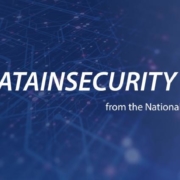Fraud alert: Use caution when talking to ‘old friends’ on Facebook
Facebook is a terrific tool for staying in touch with old friends, former classmates, family, and community members. Unfortunately, like other popular social media platforms, it also attracts scammers looking to abuse the system for their own gain. We’ve recently heard from nearly a dozen consumers who have contacted Fraud.org about scammers using Facebook’s Messenger service to try to defraud them by posing as long lost friends.
The set-up for these scams is remarkably consistent. Consumers who sent us complaints report that these scams begin when they receive a message on Facebook Messenger from someone impersonating a former classmate or an old friend. When the recipient responds, the scammer strikes up a conversation to build trust. Once trust is established, the impersonator urges the consumer to send a text message to a number the scammer controls to get information on a grant, prize, or even government stimulus funds. When the victim texts the number, they are urged to pay an up-front fee and/or supply personal information (Social Security number, bank account/credit card information, etc.) to collect the non-existent money. Victims who do send the money are then urged to send even more money until they catch on. Unfortunately, the money is often sent via wire transfer or gift cards, which are extremely difficult or impossible to stop or reverse.
While this scam is not new, the request to take the conversation off Facebook Messenger and on to text message is a new twist. This is likely due to the scammers trying to evade anti-fraud technology employed by Facebook.
Here are tips to reduce your risk of falling victim to this scam:
Don’t immediately assume your Facebook friend is who they claim to be. Thanks to widespread data breaches, it is not difficult for scammers to get the information they need to compromise a Facebook account. If you receive a message from someone you have not spoken to in a long time, do not assume that the message is legitimate. The safest course of action is to simply ignore the message.
Test them. If you do engage in a conversation and become suspicious, you can try to verify the identity of the person messaging you by asking them a question only they would know (i.e., who was our 9th grade English teacher?).
Beware requests to take conversations off Facebook Messenger. Complaints we have received often describe requests to move conversation from Facebook (where they can be monitored) to text message. This is a big red flag for fraud.
Anyone who asks you to send money to get money is swindling you. If you are asked to pay money to collect a prize, grant, stimulus check, or any other type of reward, it is a scam.
Turn on two-factor authentication and encourage your friends to do the same. One of the reasons this scam occurs is that consumers tend to re-use passwords across multiple websites (your email and Facebook account, for example). That means that if your username and password are compromised at one website, scammers can use that information to try and compromise your account at other websites. An effective way to reduce the risk of this is to turn on two-factor authentication. This will require anyone trying to log in to your Facebook account to supply a special code (typically provided via text message or an authentication app) before they can log in.
If you suspect that you have become a victim, report it immediately. You can file a complaint at Fraud.org via our secure online complaint form. We’ll share your complaint with our network of law enforcement and consumer protection agency partners who can investigate and help put fraudsters behind bars.

















